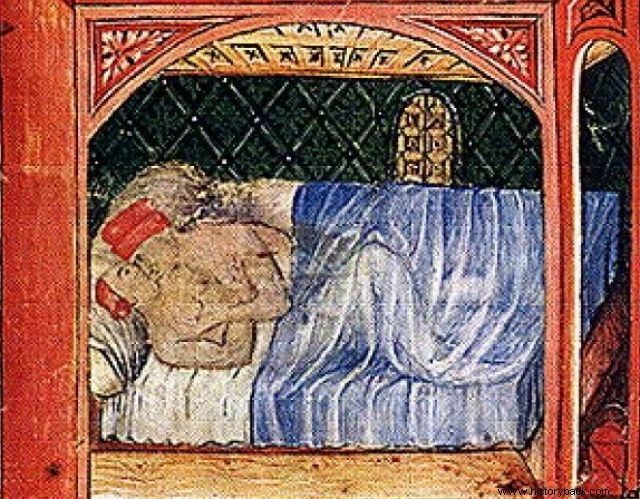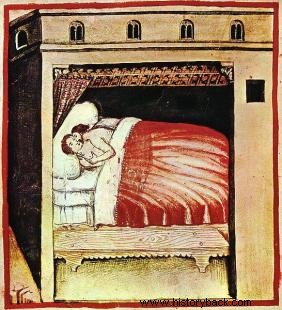
A risque image of the Middle Ages. The "horns" were widespread even then and it was in the Middle Ages that the expression "put the horns" was born
To the post https://www.pilloledistoria.it/4383/medioevo/perche-persona-tradita-detta-cornuta, which I published on Pills of History some time ago, today I add that of Emiliano Amici , which you can also find on his blog sguardosulmedioevo.org, on the same topic, namely the origins of the expression "put the horns" to refer to a betrayal; Emiliano's article, whom I thank once again for his collaboration, adds further details to what I wrote about it.

Medieval intimacy
The commonly used term “ put the horns ”Derives, as always, from our beloved Middle Ages: we are in Byzantium when the emperor Andronicus I Comnenus , a great lover and skilled seducer violently conspired against Manuel I, his cousin, who found himself forced to imprison him.
Andronicus, in order to ascend the throne, was ready for anything, so much so that he killed the widow of his cousin and the heir Alexis II weaving sinful and sometimes incestuous relationships all the time. he fought forcefully against the aristocrats :he had them arrested, he kidnapped the wives he used to have fun with for a long time and, in the sense of disfigurement, he hung on the buildings of his victims heads of killed deer during countless hunting trips. In 1185 the soldiers of William II , after the conquest of Thessaloniki, they noticed this strange custom without understanding why:when it was explained to them the term " put the horns was born. “. The word “ cuckold ”, Therefore, had great diffusion especially in Sicily. What happened to Andronicus Comnenus ? He was lynched by the crowd just as he was told by Boccaccio in the “ De casibus virorum illustrium ”In which the stories of 58 famous people are told to whom luck suddenly and disastrously turned its back.